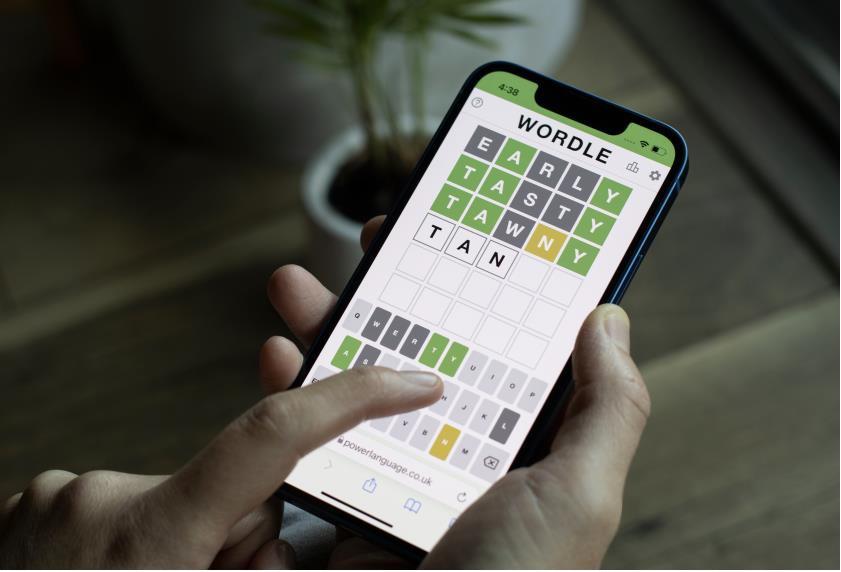
27 Feb Wordle and the Power of Success
By Thomas R. Guskey, Professor Emeritus, University of Kentucky originally posted in Education Week, Finding Common Ground,
February 8, 2022
Like many others, I’ve been amazed by the phenomenal rise in the popularity of the game Wordle. If you spend any time at all on Twitter, you’ve undoubtedly seen countless posts from friends featuring the Wordle yellow, green, and gray boxes. Wordle’s astonishing growth made me wonder why such a simple game should attract so much attention so quickly.
The secret of Wordle’s popularity appears to be the same as what explains the popularity of all game apps and video games: They allow players to experience success and progress on a challenging task. The nature of the task seems irrelevant.
Consider the earliest video games. Pac-Man is an excellent example. The Japanese arcade game manufacturer Namco Limited introduced Pac-Man in 1980, and it became an overnight sensation. People of all ages throughout the world began playing the game, all vying to improve their scores. The goal of the game was simple: gobble up the dots in a maze while avoiding capture by ghosts. To this day, it remains one of the highest-grossing and bestselling games ever developed, generating more than $14 billion in revenue.
What explains Pac-Man’s popularity is certainly not the task. There is nothing inherently interesting about gobbling up dots. It also has nothing to do with cultural relevance or innate appeal. Pac-Man was equally popular among men and women, young and old, in countries throughout the entire world. Nor does it have anything to do with attaining a tangible reward. If you succeed in gobbling up all the dots in Pac-Man, your reward is to be presented with another game with more dots in a more complex maze and faster ghosts. That’s like saying to a student, “If you solve these 10 problems correctly, I’ll give you 10 more to do, and this time, they’re going to more difficult!” That’s some reward!
Pac-Man, just like Wordle, is popular because it allows players to experience success and progress on a challenging task. Every time you play the game, you have the chance to improve your score. In Wordle, the challenge increases as the words get more complicated and the letter combinations become more difficult. Most importantly, doing better than others isn’t as important as seeing your own progress and improvement and the pride you feel in getting better.
A Mastery Experience
Psychologist Albert Bandura refers to these as “mastery experiences.” Experiencing success and seeing improvement give us a sense of pride, confidence, and optimism for success on future tasks. More generally, they enhance our mental well-being and give us a “can do” spirit.
The past two years of struggle with the COVID pandemic have strained the mental well-being of students and teachers alike. To remedy that, we need to find ways to offer both students and teachers more “mastery experiences.” We need to bring the Wordle focus of success and progress on a challenging task into classrooms on a more regular basis. Teachers who find ways to do so are likely to see remarkable improvements in their students’ mental health as well as their own.
An elementary mathematics teacher friend of mine does this by explaining to students that solving math problems is much like solving problems in video games. Specifically, success depends on having a strategy and knowing the tricks. She begins one lesson by presenting students with a list of large numbers and gives them just two minutes to determine which of the numbers are evenly divisible by 3. All students start using long division, but none is able to complete the task in two minutes.
She then explains “the trick” is to add the digits. If the sum of the digits is a multiple of three, then the number is divisible by three. So, for the number 1032, simply add 1+0+3+2=6. Since 6 is a multiple of 3, the number 1032 is divisible by 3. After going over several examples, she presents students with the same list of large numbers. This time, all are successful in just two minutes. As homework, she asks students to teach their parents the same trick.
Granted, not everything important for students to learn can be seen as a “trick.” But everything can be seen as an opportunity for a successful mastery experience. And those successes don’t have to be big. Wordle offers just one word each day. Similarly, we must do our best to ensure that every student has at least one successful learning experience each day. Students who experience even modest success each day are likely to leave school feeling a little more pride, a little more confident, and a little more optimistic about their success in coming days.
Teachers need successful mastery experiences as well. They need help in implementing evidence-based practices that lead to students’ success. They need to see tangible evidence of that success from their students so they know that what they do makes a difference. Teachers who do are likely to feel better about themselves, more confident of their effectiveness as teachers, a greater sense of pride in their work, and more positive mental health generally.
Success and progress on a challenging task offer the keys to motivation. The designers of Wordle and Pac-Man recognized that, and we must do the same. We must help students gain successful learning experiences each day, even if modest. We need to make sure students leave school each day ready to answer the question, “What did you learn today?” We also must help teachers recognize their vital role in providing students with those experiences. Doing so will greatly reduce the mental and emotional fatigue that permeates so many schools today and help restore the joy that comes to students and teachers alike from the experience of learning success.




Sorry, the comment form is closed at this time.